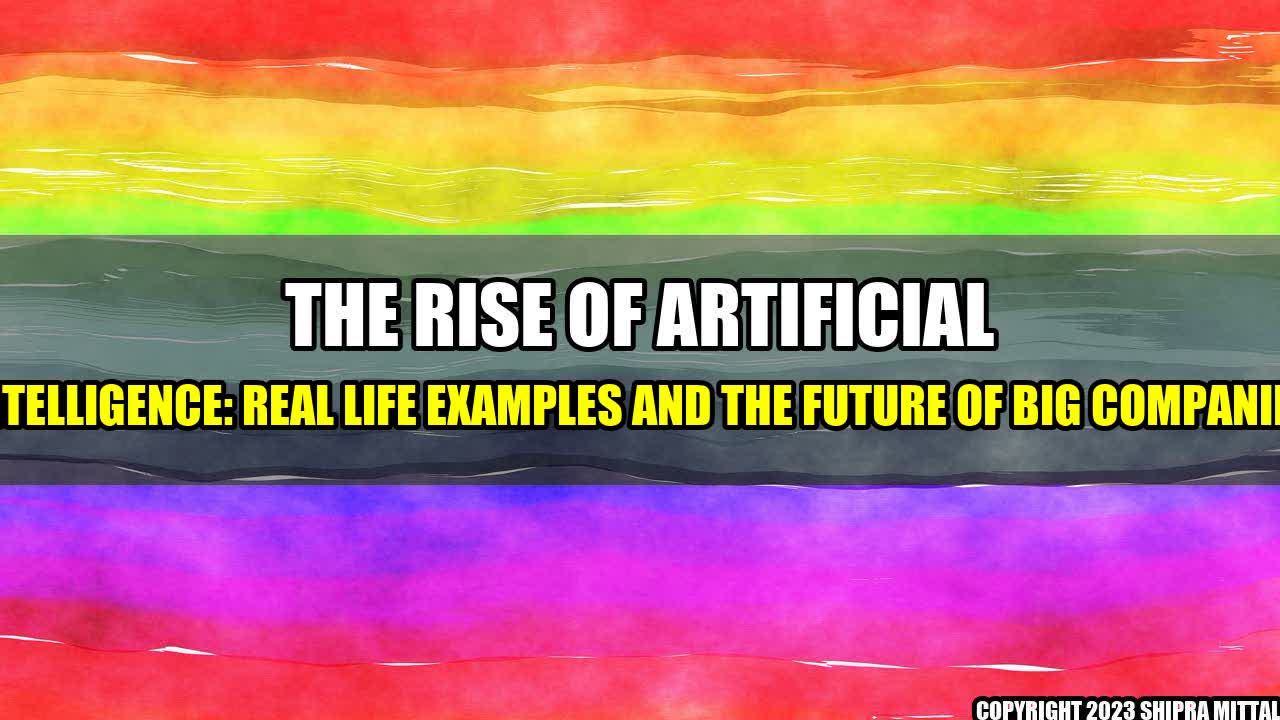An Interesting Story: How AI Changed the Game for Starbucks
Imagine you're a regular at Starbucks, and the barista knows you by name and your usual order. Now, imagine that same level of personalization, but with artificial intelligence. That's exactly what Starbucks did when they implemented their AI-powered ordering system.
The system uses data from the Starbucks Rewards program to make recommendations based on a customer's buying habits and preferences. It's so effective that it's been responsible for up to 30% of Starbucks' total sales.
Starbucks is just one example of how artificial intelligence is disrupting traditional business models and revolutionizing the way we interact with companies.
Real-Life Examples of AI and Big Companies
Artificial intelligence is already being used in a variety of industries and by some of the biggest companies in the world. Here are just a few examples:
- Amazon: Uses machine learning algorithms to make personalized product recommendations to shoppers
- IBM: Offers Watson, an AI-powered platform that can analyze data, understand natural language, and provide insights
- Facebook: Employs deep learning to automatically tag people in photos and to make content recommendations to users
- Uber: Utilizes AI for its self-driving car program and to optimize its ride-sharing algorithm
These examples barely scratch the surface of the ways in which artificial intelligence is being used to improve business practices and enhance customer experiences.
What Does the Future Hold?
While the use of artificial intelligence in business is still in its early stages, it's clear that it will only continue to grow and evolve. Here are a few predictions for the future:
- Automation will become even more prevalent, with AI-powered chatbots and voice assistants taking over more customer interactions
- Companies will use AI to predict customer behavior and tailor their products and services accordingly
- The demand for skilled professionals in the field of AI will skyrocket, leading to new job opportunities and career paths
As AI becomes more advanced and integrated into everyday business practices, it will be interesting to see how it transforms the economy and job market as we know it.
Conclusion
Artificial intelligence is already changing the way we interact with companies and experience their products and services. While there are still concerns about job loss and the ethical implications of AI, there's no doubt that its potential for positive impact is enormous. As big companies continue to invest in AI and make it an integral part of their business strategies, it's clear that this is just the beginning of a new era of innovation and progress.

Akash Mittal Tech Article
Share on Twitter Share on LinkedIn